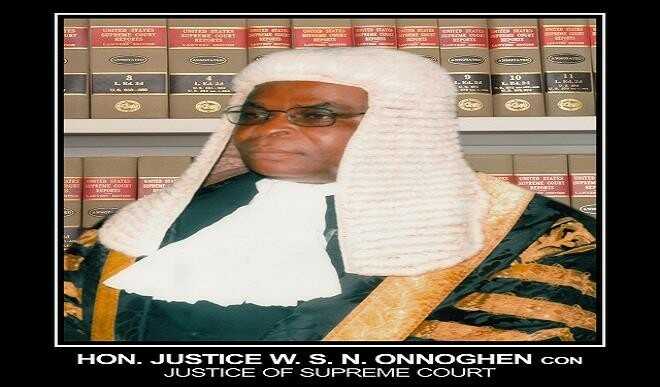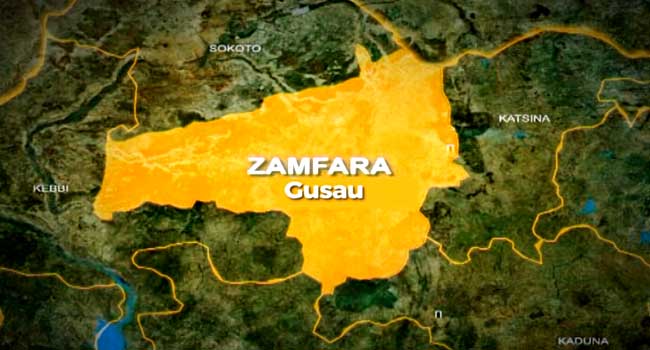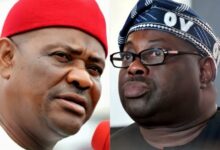The CJN should probe corrupt Governors – REPORT

In a report to mark the Anti-Corruption Day, the Human Environmental Development Agenda (HEDA) spoke of corruption allegations against 47 former governors, 10 former ministers/presidential advisers, three senators and two judges.
The CJN is empowered by the Independent Corrupt Practices and Other Related Offences Commission (ICPC) Act to raise an independent counsel to probe allegations against the President, Vice President, governors and deputy governors.

Seven governors have been implicated in the alleged diversion of the London-Paris Club refund effected by the administration of President Muhammadu Buhari.
Also, Governor of Kano State Abdullahi Ganduje has been enmeshed in a controversy over alleged bribes from a contractor.
In a report to mark the Anti-Corruption Day, the Human Environmental Development Agenda (HEDA) spoke of corruption allegations against 47 former governors, 10 former ministers/presidential advisers, three senators and two judges.
HEDA said Nigeria has about N2 trillion cases of corruption, including the $2 billion arms procurement case involving a former National Security Adviser, Col. Sambo Dasuki (retd).
Despite the efforts of the Economic and Financial Crimes Commission (EFCC) and the ICPC, there is a demand on the CJN to invoke his powers to hasten the investigation of governors with allegations of corruption.
Section 308 of the 1999 Constitution confers immunity on governors. They can only be investigated and their prosecution deferred till after their tenure.
HEDA which wrote to the CJN, requesting him to invoke his powers under Section 52 of the ICPC Act.
Section 52 reads: “When an allegation of corruption or anything purporting to contravene any provision of this Act is made against the President or the Vice President of Nigeria or against any State Governor or Deputy Governor, the Chief Justice of the Federation shall, if satisfied that sufficient cause has been shown upon an application on notice supported by an affidavit setting out the facts on which the allegation is based, authorise an independent counsel (who shall be a legal practitioner of not less than 15 years standing) to investigate the allegation and make a report of his findings to the National Assembly in the case of the President or Vice President and to the relevant State House of Assembly in the case of the state governor or the deputy governor.
“The commission shall be enjoined to fully cooperate with such independent counsel and provide all facilities necessary for such independent counsel to carry out his functions.”
The collaborating stakeholders, through HEDA wrote the CJN as follows: “Disturbed by the increasing rate cum phenomenal cumulative implications of stolen capital flight from Nigeria in particular and developing countries in general, and the escalating rise in the laundering of resources and illicit trans-border assets acquisition, the HEDA Resource Centre in collaboration with other local and global stakeholders convened a one-day international conference on tracking and recovery of illicit transactions and proceeds thereof on 13th November, 2018.
”At the said world forum, it was unanimously resolved that a special letter should be written to the Chief justice of Nigeria with a view to drawing the attention of the Number One Judicial Officer of the country and indeed of the largest judiciary in Africa South of the Sahara and North of the River Limpopo to the provisions of Section 52 of the Corrupt Practices and Other Related Offences Act. We hereby do so.
“Learned Law Lord, the foregoing provisions of the ICPC Act is clearly not in the public domain nor has it been ever utilized by any Nigerian, corporate or unincorporated, whatsoever and howsoever yet it remains a very potent instrumentality for curtailing, if not completely eradicating, theft, kleptocracy, misappropriation and all other forms of corrupt practices prohibited by the various national and international legal instruments against corruption and illicit assets.
“Consequently, the HEDA Resource Centre in concert with other local and global stakeholders hereby beseech your Lordship to urgently and kindly use your good office to publicize and activate the provisions of the said Section 52 of the ICPC Act so as to ensure or facilitate a giant leap by the Nigerian Judiciary in the global assault on corruption and corrupt practices.”
But the CJN through his Senior Special Assistant to ( Legal/ Admin), Jane E. Edu, in a December 8 letter, said he would not usurp the roles of anti-graft agency.
The CJN said: “The Honourable, the Chief Justice of Nigeria has directed that we respond to your letter with regret that he is unable to accede to your request to publicise and activate the provisions of the ICPC Act.
“Your concern for lack of awareness of the said provision of the Act is legitimate but certainly not His Lordship’s responsibility to publicize the provision of an Act which has a commission set up by law to give teeth to the provisions of the Act.
“The ICPC, EFCC, Ministry of Justice and all other agencies of government set up for this purpose, as well as other stakeholders like your good self have the responsibility to create awareness of the existence of such provisions of the Act.
“The particular provision of the Act under reference is quite clear as to the role of the Chief Justice of Nigeria. Publicity is certainly not one of them.
“The role of the Judiciary in the fight against corruption is not lost on His Lordship but he will not usurp the roles of other arms of government and their agencies.
“Please be guided accordingly and accept the assurances of His Lordship.” (The NATION)








